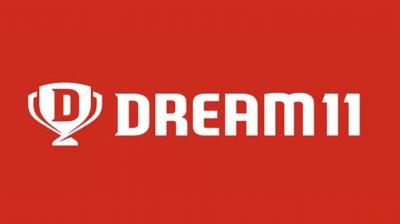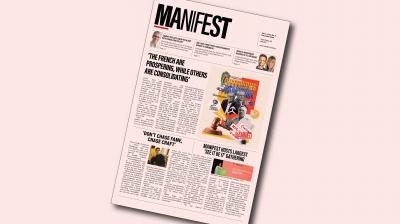LinkedIn feeds are bursting with award wins. But behind the celebrations, agency CEOs face tough trade-offs: splurging on award budgets while freezing appraisals. And given the high entry fees for each of them, emerges a critical question - do advertising awards still reflect true creative merit, or are they now just a game of money and optics?
To dive deeper into this, we explore whether the shine of awards still holds weight in today’s industry.
For this, Rakesh Hinduja, co-founder, Wondrlab India and Shormistha Mukherjee, co-founder and director, Flying Cursor, shared their thoughts.
Back in the day, awards were the only way one got to know about an agency’s pieces of work. Now, with agencies also playing the PR game, clients do have a sense of the work they are creating. So, do awards then matter as much?
Rakesh Hinduja (RH): We have had a consistent point of view on awards for several years now – both in our current form and our previous avatar. Without naming specific awards, we have always been clear that as an organisation, we choose to enter only two to three of them. Our approach is rooted in the belief that our work should meet global benchmarks. So naturally, we aim for those standards.
That said, we also recognise that in striving for global excellence, there can be a risk of overlooking work that resonates deeply
with local culture or reflects popular work culture. That’s why, beyond global platforms, we also ensure participation in awards that celebrate cultural nuance and local sensibilities.
Broadly, these two types of awards reflect our philosophy. However, if a client feels strongly about entering their work somewhere specific, we support that too. That’s the mix we believe in.
Shormistha Mukherjee (SM): I think with social media and the PR that everyone is generating, you don’t need awards to see who is doing what work. I feel awards that foster young talent but also help them through mentorship are the only ones that should be relevant today. Like what Indian Creative Women (ICW) does. They are driving change, and not just creating another award show.
Award shows are extremely expensive to enter. That means that sometimes it’s not the best pieces of work, but the ones that have the maximum budgets end up winning awards. What’s your take on this?
RH: Award entries have become overwhelming lately. Even global networks have had to pause their Cannes Lions submissions for a year or two, just to reallocate that spend elsewhere. For younger, leaner organisations, the financial strain is even more pronounced; we don’t have layers of overheads to absorb these costs. That is why we have made a conscious choice to allocate a fixed budget for awards. We can’t afford to go overboard; these costs shouldn’t come at the expense of other priorities.
That said, this is the compromise we live with. Ideally, if I feel a piece of work deserves 15 category entries at a show like Cannes, I’d love to submit it in all 15. But practically, I can only enter four. That’s the tough call.
SM: I agree. One will see the same entry across almost every category. For example, a print ad is also seen in social and digital. And sometimes each piece of work in a campaign will also be entered separately. It’s such a waste because then it’s just carpet combing, hoping something will land. It’s money for the award show though. So everyone is happy.
There’s a debate about the ethics behind charging an entry fee. If one has to pay to enter an award, is the award truly worth it?
RH: We can’t treat awards like a free-for-all. This isn’t a solo sport, it’s a team effort. One can’t be the ‘Aamir Khan’ of advertising and not enter any awards. One needs to pick their battles because let’s be honest, bias does exist in award judging. So we choose carefully where we want to show up and where we don’t. While it’s great to celebrate high-impact TVCs or cutting-edge innovations, we often ignore work that drives real business impact. Why aren’t we recognising the smart, mid-funnel campaigns or bottom-of-the-funnel ideas that lead to immediate conversions? For instance, a client launches a product and expects 5,000–20,000 headset conversions on day one - that’s a massive creative and tech-led challenge. And yet, there’s little celebration of that success.
SM: Aren’t awards a business anyway?
When you see a fellow agency sponsoring an awards show, do you believe that judging could be rigged in favour of the sponsor?
RH: Biases – both direct and indirect do creep into the process, and that’s what makes it unfair. It happens across several award shows, especially when judging isn’t transparent or happens behind closed doors. Unlike sports, where outcomes are clear if you run a race, you either win or you don’t, advertising awards bring in other variables. Things like sponsor influence, organiser preferences, or even commercial considerations can skew the playing field. And let’s not forget that many award bodies are for-profit entities. When awards become a business, the business often takes precedence. For example, we have experienced first-hand how entry fees can vary depending on the size of the organisation. Larger networks get better rates than independents like us.
SM: I would hope not.
With a plethora of options, how do you go about picking award shows to enter?
RH: We have chosen a specific set of awards that reflect that standard. Secondly, it’s equally important for us to celebrate popular, culturally resonant work that creates a two-way impact. That’s why we enter a second set of awards focused on that space. This has been our structure for the past ten years, whether at Wondrlab or earlier at Leo. That said, as I mentioned earlier, there’s a growing need now for full-funnel awards not just those celebrating top-of-the-funnel visibility, but also work that delivers value through to conversion.
SM: We don’t enter any of them. We used to, but then one year we called the whole office and gave them a choice - should we enter awards or should we take that money and do something with it - distribute it, donate it, etc? And they chose the second option. That just told us that awards don’t matter. Today, most people would rather do work that got shared and forwarded rather than work that got awarded.
This article was first published in the May issue of Manifest. Get your copy here!

.jpg)









